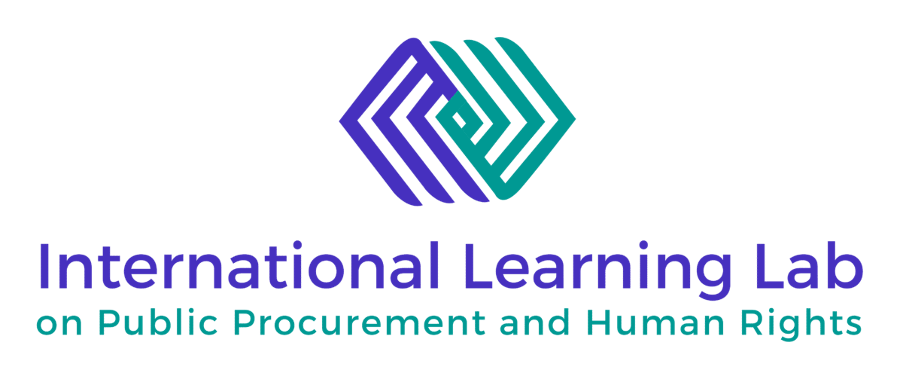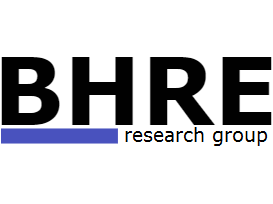PUBLIC PROCUREMENT DURING COVID-19 IN LATIN AMERICA: CHALLENGES, RESPONSES AND NEXT STEPS FORWARD - Laura Treviño-Lozano and Olga Martin-Ortega, November 2020
This article is based on our presentation to the UN Fifth Regional Forum on Business and Human Rights and our work on public procurement and human rights, including: Olga Martin-Ortega and Claire Methven O’Brien (2019) eds, Public Procurement and Human Rights: Risks, Dilemmas and Opportunities of the State as a Buyer (Cheltenham: Edward Elgar).
On the 8th September 2020, during the United Nations Fifth Regional Forum on Business and Human Rights for Latin America and the Caribbean a topic which is receiving increased interest in the region and is key to move forward the business and human rights agenda was addressed: human rights and public procurement.
Public procurement is the process through which the public sector buys goods, services and works to accomplish its functions or needs. The relevance of public procurement to human rights can be seen in two ways.
Firstly, public procurement contributes to the realisation to the human rights of end users of purchased goods and services. During the pandemic, the purchase of goods like masks, medicines, ventilators and medical services served to guarantee patients’ right to health and life. Ultimately, patients were the end users of these goods.
Secondly, public procurement is a powerful tool that can be leveraged by States to comply with their international human rights obligations. Obligations include guaranteeing not only the end user’s human rights, but also the rights of people that are involved in the production and delivery process, like workers in supply chains. The United Nations Guiding Principles on Business and Human Rightsestablish that States can fulfil human rights obligations by requiring that their suppliers adopt responsible business conduct measures through contractual obligations. Although some progress has been seen in embedding human rights within public procurement, this second dimension has been given less attention within public procurement practices of States in Latin America and the Caribbean.
CHALLENGES
We have identified two main challenges that emerged during Covid-19 for Latin American State’s public procurement, which also has several human rights impacts. The first challenge for States has been, and still is, meeting the massive need for certain medical products whilst protecting labour rights in supply chains. Governments faced difficulties because of the increased demand for certain products and services which has not been met by supply; essential goods are scarce and become more expensive, and needs are many, but public resources are few. Overwhelming demand of goods and limited supplyhas encouraged abusive and fraudulent procurement and recruitment practices in State’s suppliers. Some examples observed in supply chain are abusive working conditions; excessive working hours; inadequate security and hygiene conditions in work centres exposing workers to accidents and diseases, including Covid-19 infection. These abuses were visible pre-pandemic, but whilst they have been exacerbated by it, the global health risks have also shinned a spotlight on them. From a procurement perspective, our research indicates that there has been an increase of purchasing goods from sectors and countries where human rights abuses are generalized; suspension of audits and monitoring; and insecure supply chains that have been interrupted during the emergency, putting at risk the supply of essential products.
The second challenge entails the purchase of required goods to meet urgent health needs in a timely fashion alongside ensuring business accountability, transparency and the respect of human rights. We found ‘buying fast’ exacerbated procurement common problems under normal purchasing conditions such as competitiveness, transparency and anti-corruption, institutional coordination and collaboration and quality control. These issues, to a large extent, are due to the elimination of requirements and formalities commonly found on purchasing processes under normal conditions in order to obtain supplies as fast as possible. For example, Panama issued on 26 march 2020 a decree that exempts health and safety entities from applying general procedures (contained in Law 22 of Public Procurement). Likewise, Colombia issued decrees 440,537 and 544 between 20 march and 13 April 2020 allowing direct awarding and permitted acquisition in the international market bypassing public procurement rules for some drugs and medical equipment. Similarly, Chileadopted fast-track purchases for those with amounts of less than five thousand US dollars, effectively avoiding public procurement procedures for these purchases. Lifting requisites and formalities in the procurement process increases the risk of not selecting the most appropriate suppliers, of preventing human rights abuses in supply chains and not obtaining the best value for money.
Typically States purchase goods and services by selecting a winning bid through an open tender process. Yet, during the pandemic this general rule identifying a supplier was substituted with direct award of contracts. The procurement model of direct awarding has been linked to corruption and difficulties for adequate auditing, including human rights accountability and monitoring, as explained below. Although risks associated to direct awarding have been mitigated by procuring only from suppliers with an ‘approved record’ in countries like Guyana, multiple cases of cost overruns in the purchase of supplies such as masks, medical equipment, ventilators, medicines and body bags were found in Mexico, Chile, Ecuador, Bolivia, Colombia, Paraguay, Guatemala, Brazil, Honduras and Peru. In fact, in Peru, three months after the country declared the state of emergency due to COVID-19, anti-corruption prosecutors reported an increase of 700% of presumed cases of corruption in public procurement. Conflict of interests were also seen in business suppliers owned by public servants selling masks to the government in El Salvador and others owned by public servant’s direct relatives supplying expensive ventilators in Mexico. Moreover, there are ongoing investigations in Honduras for the purchase of mobile hospitals for more than fifty million dollars to shell companies.
RESPONSES
The response of governments in Latin America and the Caribbean to the need increased need for procurement of goods during the pandemic, such as personal protective equipment, focused on transparency measures and guidelines for efficient-purchasing. Although transparency helps to prevent corruption, which can impact on human rights in different ways, no specific or direct measures to protect human rights were identified in the RICG, OEA and IDB mapping of the capacity of purchasing agencies in the region to address the health emergency.
Some governments provided transparency tools like digital platforms to enable access to information related to Covid-19 purchases such as Colombia through Covid-19 Citizen Control Tool, Paraguay through MapaInversiones and El Salvador through Emergency purchase in CompraSal. Furthermore, these countries issued implementation guidelines to facilitate emergency procurement such as Colombia’s Transparency Guide in State Contracting during the Covid-19 Pandemic, El Salvador’s Specific Guidelines for Emergency Purchase for the Pandemic Covid-19, and Paraguay’s Quick Guide for Public Procurement to Cope with the Health Emergency Covid-19 and the Quick Guide for Citizen Control of Public Procurement.
NEXT STEPS FORWARD
During the panel’s discussions, detailed in a blog by Andreas Daugaard, governments shared good practices regarding inclusion of vulnerable local groups as State’s suppliers, online quotation for suppliers, and law amendments to strengthen labour rights like the case of Paraguay. They also raised concerns regarding best practices in accountability mechanisms and inclusion of SMEs as State’s suppliers to boost local economies.
We note that governments are focusing to include local business and other vulnerable groups as their suppliers to contribute to activate local economies, but efforts are still required to deliver on an comprehensive approach to embed human rights throughout the procurement process from the risk identification stage through to contract management. We found that responsible procurement practices are focussed on the purchase of daily goods and services, which overlooks the fact that public procurement also includes contracting business to develop infrastructure projects. Daily goods and services should not be the only focus when considering responsible public procurement, specially, as human rights considerations are currently absent in public procurement of infrastructure in general. We found an enhancement of labour standards within the State’s main suppliers, but little steps forward have been made to secure the same human rights for workers within sub-suppliers or throughout supply chains.
Transparency tools have also been developed and enhanced during the pandemic to prevent corruption which is a common issue affecting almost every country in the region. However, transparency is still not seen by governments as a powerful tool that can be leveraged to ensure human rights accountability for both public and private parties and prevent business-related human rights abuses.
The pandemic presents strong challenges, but also opportunities to enhance inclusion of human rights within public procurement moving forwards. We propose three strategies within transparency that can prevent human rights abuses within public procurement:
First, improve digital platforms to increase access to information by including detailed information about a supplier’s supply chain or sub-suppliers. Information on supply chains is typically missing in these platforms, and disclosing at least basic details about contracted suppliers, such as names, number of employees, addresses, and contact information, can contribute to better accountability, including human rights accountability.
Secondly, include more information on transparency platforms about reasons why suppliers have been subjected to penalties. We have found that public information about sanctions applied to suppliers don’t include, in a detailed way, the reason for the sanction. For example, in Paraguay’s platform you can see a sanction for ‘breach of contractual obligations imputable to the supplier’, but without specifying whether those obligations involved a 1-day delay in delivery of goods or multiple situations of child labour in their factories, for example. There is a big difference between those two and both can derive from a breach of contract.
Third, compliance with human rights standards has to be included with tender documents and contracts with suppliers in public purchasing processes. This allows public buyers to not only demand certain practices from their suppliers but also to monitor the impacts of their own purchasing practices and engage with suppliers to improve the working conditions of those who produced the goods or deliver the services they procure. Typically, governments fail to include human rights obligations within the contract. By including them, they not only strengthen obligations that are already legally binding for suppliers, but contribute to deter them from abusing human rights because they fear losing their business with the State.
Laura Treviño-Lozano is former Head of the first Business and Human Rights Programme in Mexico’s National Human Rights Institution. She collaborates with the Responsible Procurement Advisory Group of the London Universities Purchasing Consortium and the UN Business and Human Security Initiative.
Olga Martin-Ortega is a Professor of International Law at the University of Greenwich, UK, where she leads the Business, Human Rights and the Environment Research Group (www.bhre.org). Among her recent publications are Olga Martin-Ortega and Claire Methven O’Brien (eds), Public Procurement and Human Rights: Opportunities, Risks and Dilemmas for the State as Buyer (Edward Elgar, 2029) and Rebecca M.M. Wallace and Olga Martin-Ortega, International Law (Sweet&Maxwell, 2020, 9th edition).

